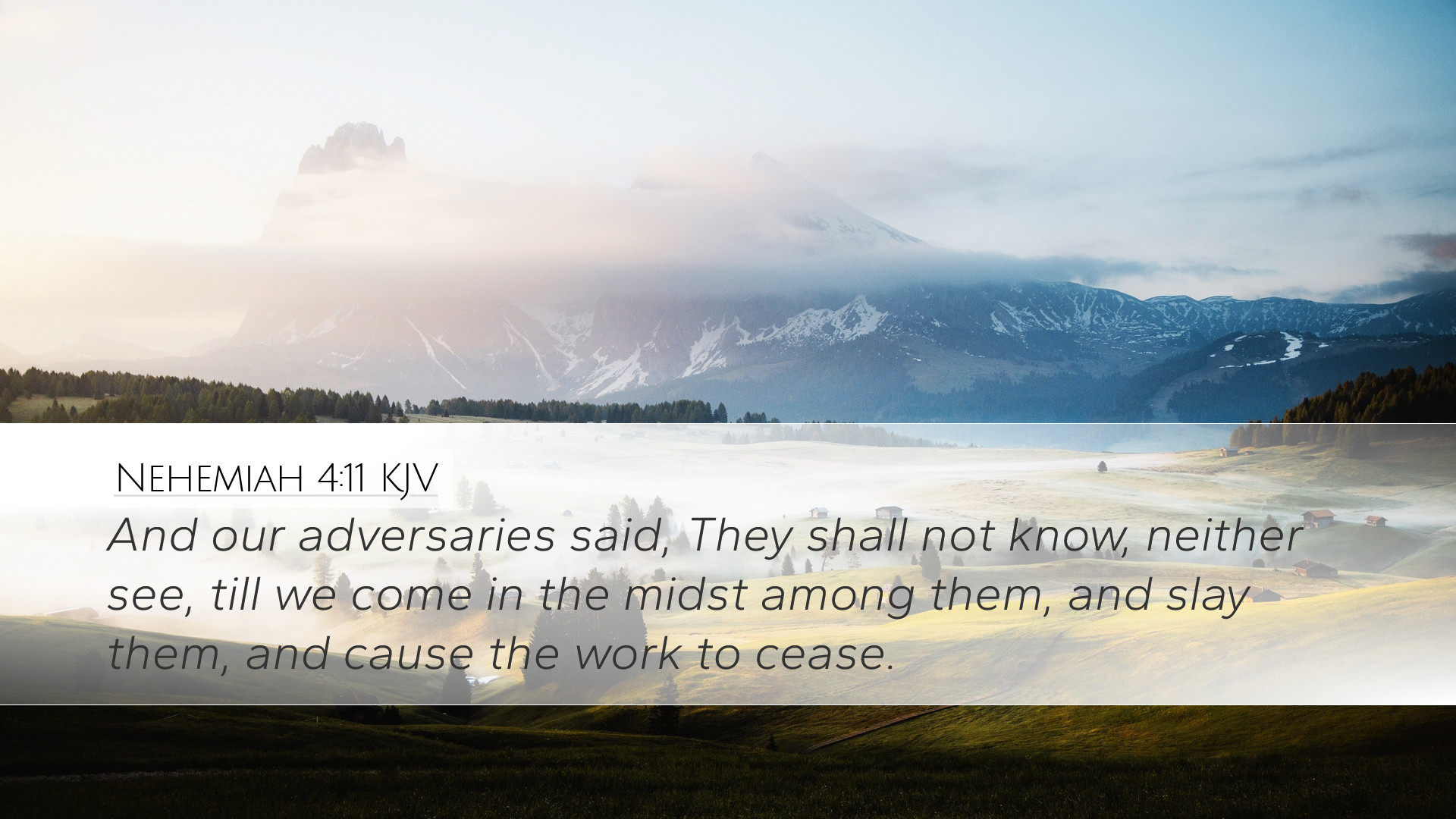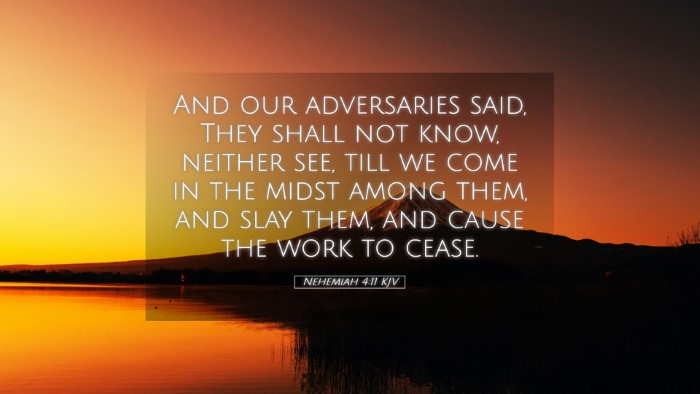Commentary on Nehemiah 4:11
Nehemiah 4:11 (KJV): "And our adversaries said, They shall not know, neither see, till we come in the midst among them, and slay them, and cause the work to cease."
Introduction
The verse Nehemiah 4:11 highlights the dire circumstances faced by the Jewish exiles who were rebuilding the walls of Jerusalem. This period represents a time of significant stress and opposition that necessitated both physical resilience and spiritual vigilance. Public domain commentaries shed light on the historical context, theological implications, and moral lessons tied to this passage.
Contextual Background
The events in Nehemiah take place during a period when Nehemiah was appointed as the governor of Judah. His mission was to restore the city of Jerusalem and its walls, which had lain in ruins. The rebuilding efforts faced strong opposition from various regional adversaries such as Sanballat and Tobiah. Understanding these dynamics is crucial for interpreting the meaning of Nehemiah 4:11.
Exegesis of Nehemiah 4:11
The verse reveals the intent of Nehemiah's adversaries, who believed that stealth and surprise would be their tools to thwart the rebuilding efforts. Their assertion that the workers would be caught off guard underscores the themes of vigilance and alertness in the face of opposition.
Matthew Henry's Commentary:
- Henry emphasizes the sinister nature of the attack planned by the adversaries, showcasing their desire to incite fear among the builders.
- He points out that such tactics were often the modus operandi of those who oppose God's work, highlighting the need for discernment among the faithful.
Albert Barnes' Notes:
- Barnes interprets the adversaries' intention as a reflection of the spiritual battle faced by communities involved in God’s work.
- He suggests that this passage illustrates the persistent nature of evil endeavors during a divine mission.
Adam Clarke's Commentary:
- Clarke notes the psychological implications of fear in this passage, asserting that the enemies sought to undermine the confidence of the builders.
- He argues that this serves as a reminder for leaders to be proactive in safeguarding their communities against discouragement.
Theological Implications
The verse offers rich theological insights, particularly concerning the perseverance of faith amidst adversity. It raises questions about the nature of spiritual warfare and the necessity of vigilance for those engaged in God’s work.
- Spiritual Alertness: The need for alertness against deception and attack is a recurring theme in scripture.
- The Nature of Opposition: Recognizing that hostility may arise not just from external forces but also from within can galvanize the community's resolve.
Practical Applications
For pastors, students, and theologians, Nehemiah 4:11 can serve as a poignant reminder of the challenges that accompany any ministry or community effort aimed at doing God’s work.
- Preparedness: The necessity of preparation can be seen as a mandate to equip one’s self and the community with both spiritual and practical resources.
- Encouragement in Adversity: The encouragement found in Nehemiah’s leadership can inspire believers to remain steadfast despite external pressures.
- Call for Unity: The passage emphasizes community solidarity against common threats; it encourages collective action rather than isolation in times of adversity.
Conclusion
Nehemiah 4:11 stands as a testament to the complexities of leadership within the scope of divine restoration. The insights gleaned from public domain commentaries elucidate how fear, disappointment, and opposition must be met with faith, vigilance, and collective effort. As such, this verse becomes a central locus for understanding the trials of rebuilding not just physical structures but also spiritual communities.


